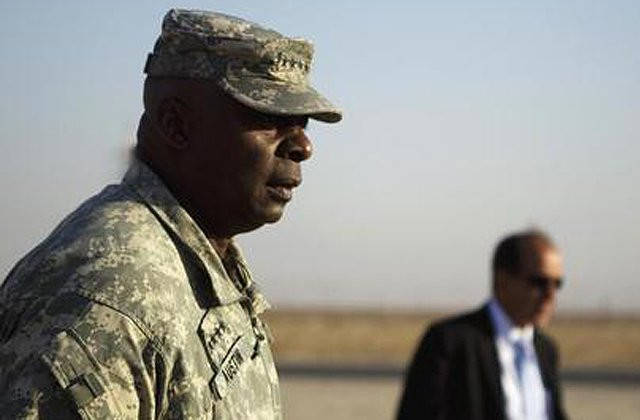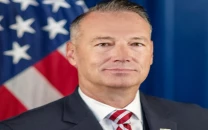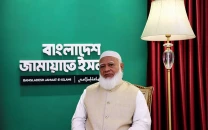Key US general backs keeping Afghan forces at peak strength
Keeping the larger-size force would certainly reassure the Afghans: US military's Central Command head

A file photo of US military's Central Command General Lloyd Austin. PHOTO: REUTERS
General Lloyd Austin, nominated to lead the US military's Central Command, said at his Senate confirmation hearing that a more robust Afghan force, while more costly, would "hedge against any Taliban mischief" following America's longest war.
"Keeping the larger-size force would certainly reassure the Afghans, it would also reassure our Nato allies that we remain committed," Austin said.
The comments came two days after President Barack Obama announced in his State of the Union address that 34,000 US troops - roughly half of the current US force in Afghanistan - would be withdrawn by early 2014.
Obama reassured Americans that the costly, unpopular war was coming to an end, but he left unanswered bigger questions about America's exit strategy, including how many US troops would stay in the country beyond 2014 to help train and advise the Afghans and to battle remnants of al Qaeda.
Obama also did not discuss the future size of the Afghan forces, although a White House fact sheet sent out after his address noted they would remain at 352,000 until "at least" early 2015.
Austin warned the Taliban would be waiting to test them.
"You could reasonably expect that an enemy that's been that determined, that agile, will very soon after we transition begin to try to test the Afghan security forces," Austin said.
Under current plans, the United States and its Nato allies will help build up the Afghan armed forces to 352,000 personnel, a number they are approaching, but the size of the force – which the allies will continue to fund - will be trimmed to 230,000 after 2015.
Echoes of Iraq
The hearing frequently moved away from questions about the Afghan war and other current events to questions about Austin's past role as commander in Iraq, when a failure to strike an immunity deal for US troops led to their total withdrawal in 2011.
Obama administration officials have warned that failure to strike an immunity deal with Afghanistan would also result in a pullout, but Afghan President Hamid Karzai and US officials have expressed confidence a deal can be reached.
Republicans, who have criticized Obama's drawdown strategy in Afghanistan, noted that the president would have left a much smaller force in Iraq than Austin recommended, even if a deal had been struck.
SeNator John McCain of Arizona lamented the lack of a US presence in Iraq.
Pressed by Republicans, Austin acknowledged that the situation in Iraq was trending in a "problematic" direction, and agreed that a continued US role would have helped bolster Iraqi forces.
When it came to Afghanistan, SeNator Lindsay Graham of South Carolina warned Austin that if Obama sought an insufficient force for the post-2014 mission, he would refuse to vote for funding the war effort.
"It can be as low as 9 or 10,000, that I will stand with them," Graham said.
"If they overrule the commanders and create a force that cannot in my view be successful, I cannot in good conscience vote to continue this operation."
Graham said he would vote for Austin's confirmation once Austin spoke with the former commander of the Afghan mission, General John Allen, about his recommendations to Obama and reported back to the committee about his opinion.



















COMMENTS
Comments are moderated and generally will be posted if they are on-topic and not abusive.
For more information, please see our Comments FAQ